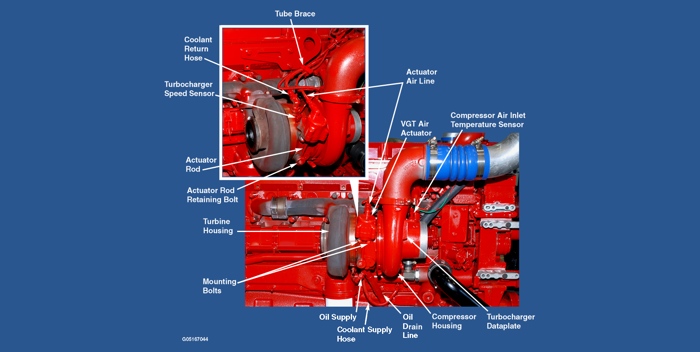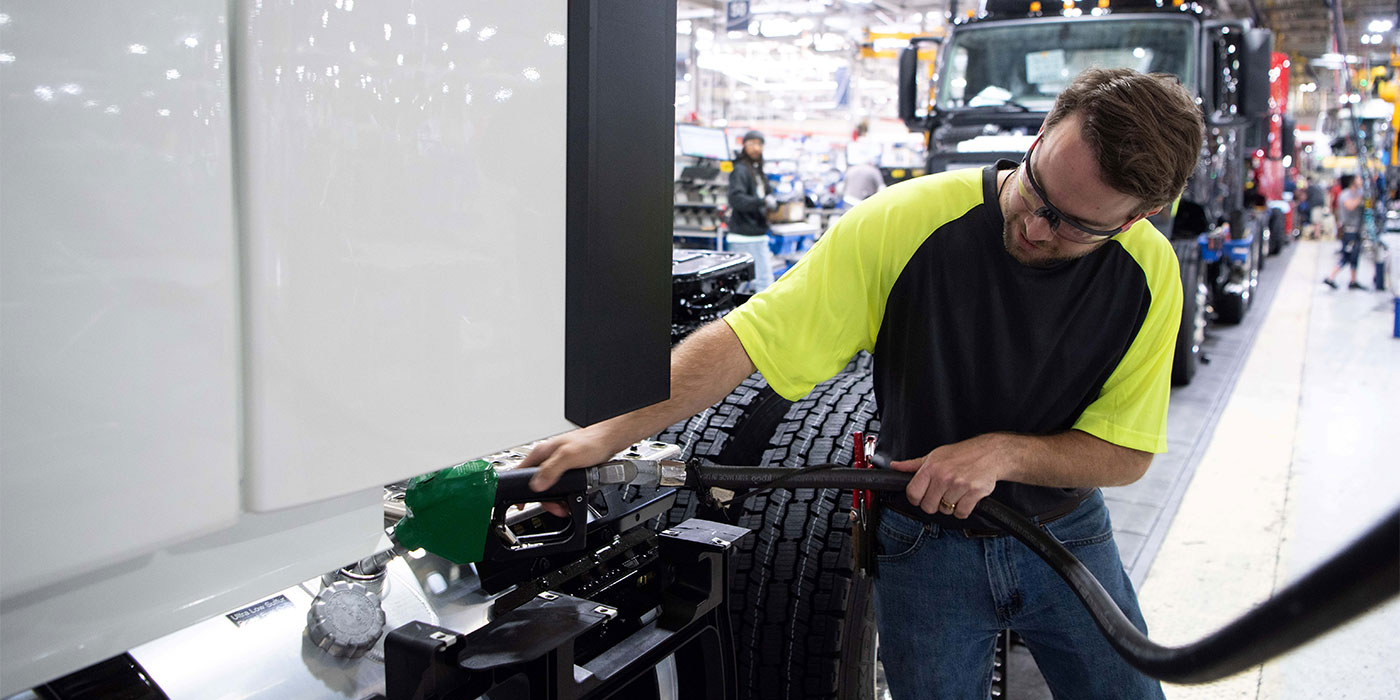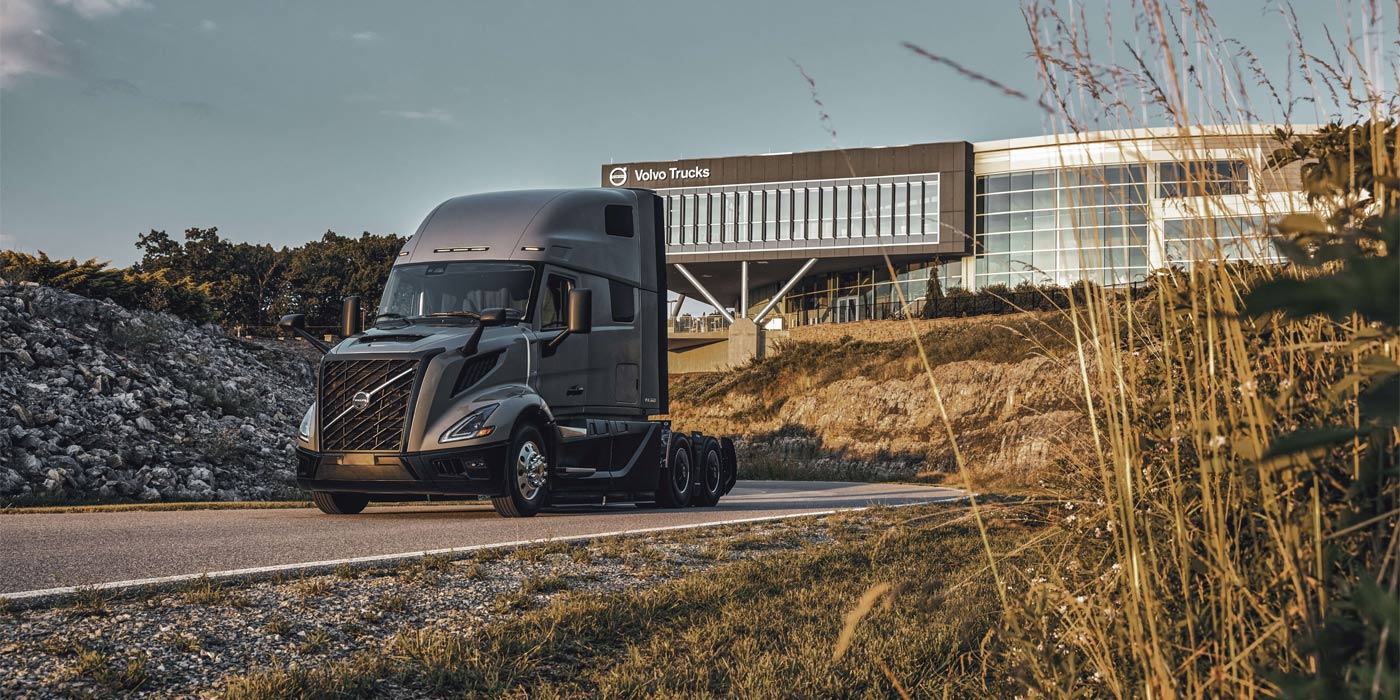Turbochargers are an important component on today’s commercial vehicle diesel engines and are engineered to provide optimal performance throughout the engine operating range. Keeping the turbocharger and associated systems well maintained can have a big impact on overall vehicle efficiency.
Turbochargers use exhaust energy to drive a turbine wheel, which in turn drives a compressor wheel through a common shaft. The compressor wheel draws in incoming air and compresses it, forcing denser air charge into the combustion chamber. This creates more efficient combustion that increases engine power and fuel economy, while at the same time helps to reduce exhaust gas emissions.
Along with the engine lubrication system, the intake and exhaust systems also play an important role in turbocharger efficiency. If these systems are not maintained in peak operating order, they can lead to decreased turbocharger performance and even misdiagnoses of the turbocharger. A defective turbocharger has a negative impact on fuel economy, engine power and the vehicle aftertreatment system.
If the engine oil and filters are not changed as recommended by the OEM, based on the vehicle’s operating conditions, the lubrication qualities of the oil will break down. This can lead to turbocharger bearing failures and other engine failures requiring costly repairs.
The air intake and exhaust systems are equally important. A clogged air filter, as well as leaks in the intake or exhaust system, reduces air flow that can result in excessive smoke, increased oil consumption, low power complaints and noisy turbocharger operation.
The Charge Air Cooler (CAC) is another important component to maintain. As the turbocharger compressor wheel compresses the intake air, the CAC cools and condenses the air before entering the combustion chamber. Warmer charge air leads to a lower charge air density and higher combustion temperatures resulting in loss of power, torque and increased emissions.
Maintaining today’s turbocharged diesel engines is not a simple task, given today’s emission standards and all the variables affecting engine performance and fuel economy. But keeping the engine and turbocharger in peak operating condition is a crucial step in achieving lower operating costs and increasing your bottom line.
This article was submitted by Mitchell 1 Commercial Vehicle Group Editor Julius Hairston, as part of Mitchell 1’s series of tech tips. For more, visit Mitchell 1’s website.














